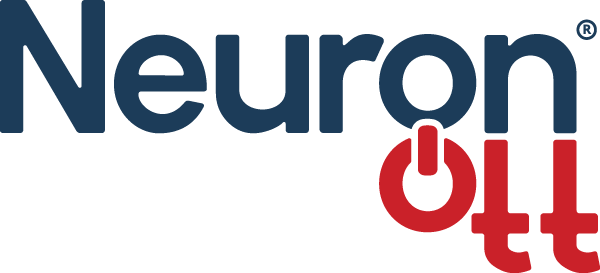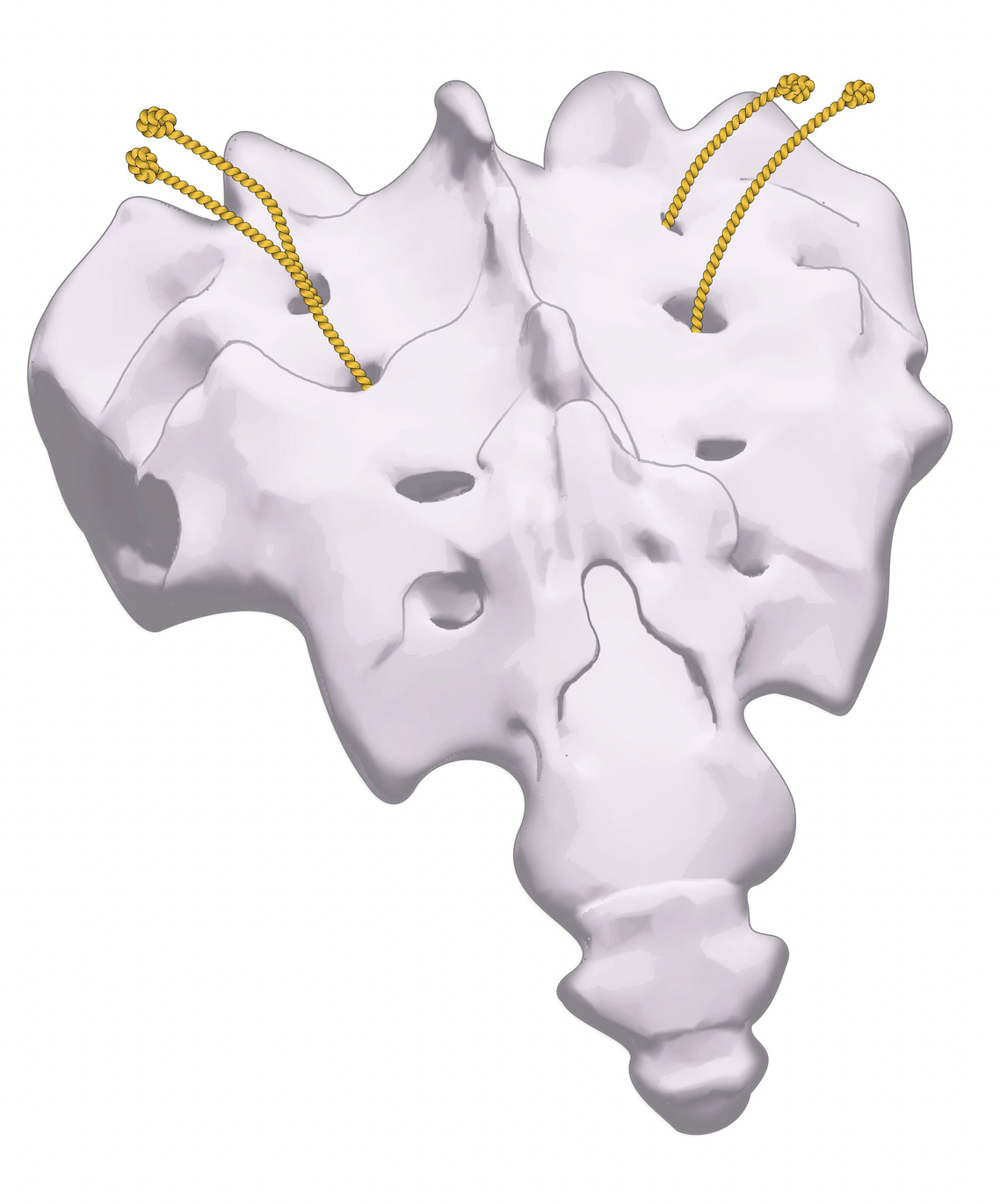
In the News
INJECTABLE MULTI-LEVEL SACRAL ROOT NEUROMODULATION INTERFACE FOR THE TREATMENT OF SCI BLADDER DYSFUNCTION
October 2022 - A team led by Neuronoff co-founder Andrew Shoffstall received $500,000 for a 2 year grant to evaluate the Injectrode's use in treating bladder dysfunction, a significant medical and quality of life problem for individuals with spinal cord injury. Electrical stimulation of the sacral roots has potential to treat SCI bladder dysfunction (voiding and incontinence). In this project, the team will collect acute and chronic performance data on the use of the Injectrode placed on the sacral roots in a preclincal model.
INJECTRODE CLOSER TO PROVIDE FULLY REVERSIBLE NEUROMODULATION OUT OF A NEEDLE
July 2021 - Neuronoff recently disclosed that they have developed a fully removable version of the Injectrode®, an electrode that can be injected using an 18 Ga needle to reach any location that is currently targeted by lidocaine or steroid injections, such as transforaminal epidural injections that commonly take about 10 minutes in an office setting. The Injectrode forms an anchor at the target location that prevents movement of the electrode and the lead portion after placement. If need be, more than one anchor location can be formed during the injection process. The device is completely implanted, leaving a low impedance path from the nerve target location to a location within the subcutaneous tissue. In other words, there is no percutaneous wire exiting the future patient, but instead a TENS-like device is able to stimulate the nerve target tissue deep inside the body by passing current through the Injectrode.
PARKINSON'S AND ALZHEIMER'S DISEASE TREATMENT RESEARCH USING THE INJECTRODE
July 2021 - The lab of Kip Ludwig, co-founder of Neuronoff, Inc., received a $313k supplement from NIH/NIBIB to extend use of the Injectrode as a minimally invasive neuromodulation treatment to treat neurodegenerative diseases caused by misfolded proteins in the brain such as seen in Parkinson’s Disease (PD), Alzheimer's (AD) and in AD-related dementia (ADRD). The Injectrode will be used to stimulate cranial nerves to clear misfolded proteins at an early stage of the disease to prevent neurocognitive deficits from manifesting.
DRG PAPER RECEIVES 2ND PLACE FOR BEST PAPER AWARD AT IEEE NER 2021
May 2021 – Postdoctoral Associate Ashley Dalrymple, PhD received the 2nd place in the Best Paper Award for her publication titled "Recruitment of Primary Afferents by Dorsal Root Ganglion Stimulation using the Injectrode" at the IEEE EMB NER conference in May of 2021. Dr. Dalrymple is part of Dr. Weber's group at Carnegie Mellon University. The work was sponsored by NIH 1U18EB029251-01.
NERVE STIMULATION HELPS MANAGE PAIN WITHOUT OPIOIDS
May 2020 - “NIBIB’s HEAL grantees develop a new type of injectable electrode for neuromodulation therapy. Researchers at the University of Wisconsin (UW) are adapting a minimally invasive, safer approach to electrically treat pain directly at the source as part of the Helping to End Addiction Long-term Initiative, or the NIH HEAL Initiative.”
National Institute of Biomedical Imagining and Bioengeneering
MOVE OVER OPIOIDS, NEUROMODULATION IS WHAT’S NEXT
January 2020 - “In 2011, Boston Scientific acquired Cleveland Clinic neuromodulation spinoff Intelect Medical for $78 million. In the last year alone, SPR Therapeutics announced a promising study on sustained pain relief, newcomer Neuronoff was awarded a $2.2 million National Institutes of Health grant, and Checkpoint Surgical received FDA Breakthrough Device designation and is doubling its workforce.”
LIQUID ELECTRODES MORPH INTO FLEXIBLE WIRES FOR NEURAL STIMULATION
December 2019 - “Now, a team of biomedical engineers has created a type of electrode that can be injected into the body as a liquid, then harden into a stretchy, taffy-like substance. In a paper in the journal Advanced Healthcare Materials, the multi-institutional team used their Injectrode® to stimulate the nervous systems of rats and pigs, with comparable results to existing implant technologies.”
INJECTABLE, FLEXIBLE ELECTRODE COULD REPLACE RIGID NERVE-STIMULATING IMPLANTS
November 2019 - “By electrically stimulating nerves, neuromodulation therapies can reduce epileptic seizures, soothe chronic pain, and treat depression and a host of other health conditions without the use of conventional drugs like opioids. Now, biomedical engineers have made a significant advance that could dramatically reduce the cost of neuromodulation therapy, increase its reliability and make it much less invasive.”
‘INJECTRODE’ COULD REVOLUTIONIZE NEUROMODULATION PAIN TREATMENT
November 2019 - “A team of scientists and engineers has developed a flexible electrode that can be injected into the body to stimulate damaged nerves, relieve chronic pain and treat other conditions. The so-called “Injectrode®” could revolutionize neuromodulation therapy by eliminating the need for invasive spinal cord stimulators and other surgically implanted medical devices. Researchers used a liquid silicone base -- similar to surgical glue – and mixed it with small metal particles to make it electrically conductive.”
OPIOIDS ABATED WITH ‘INJECTRODE’ NEUROMODULATION TECHNIQUE
November 2019 - “An electrode that is injected into a patient as a liquid before curing inside the body could make neuromodulation therapies more reliable, less invasive and more economical. According to the team, current neuromodulation treatments rely on surgically implanted devices that can cost up to six figures, require complex procedures to install, and often fail as they are rigid devices attempting to mesh with soft biological tissue.”
NEURONOFF RECEIVES $2.2 MILLION GRANT FROM NATIONAL INSTITUTES OF HEALTH TO COMBAT OPIOID ABUSE
October 2019 - “As part of the NIH’s Helping to End Addiction Long-Term (HEAL) initiative, the project will focus on testing the Injectrode® at the dorsal root ganglion, part of the spinal nerve, and stimulating this target to alleviate pain and reduce dependence on opioids. The design of the Neuronoff device enables it to be implanted minimally invasively via a small needle, eliminating the need for a large surgical incision and reducing recovery time and costs.”
LUDWIG LANDS $2 MILLION GRANT AS PART OF NIH EFFORT TO COMBAT OPIOID ABUSE
September 2019 - “Kip Ludwig, an associate professor in the Departments of Biomedical Engineering and Neurological Surgery at the University of Wisconsin-Madison, will lead a more than $2 million National Institutes of Health (NIH) grant to test a novel liquid metal electrode as an alternative means of treating chronic back pain.”


